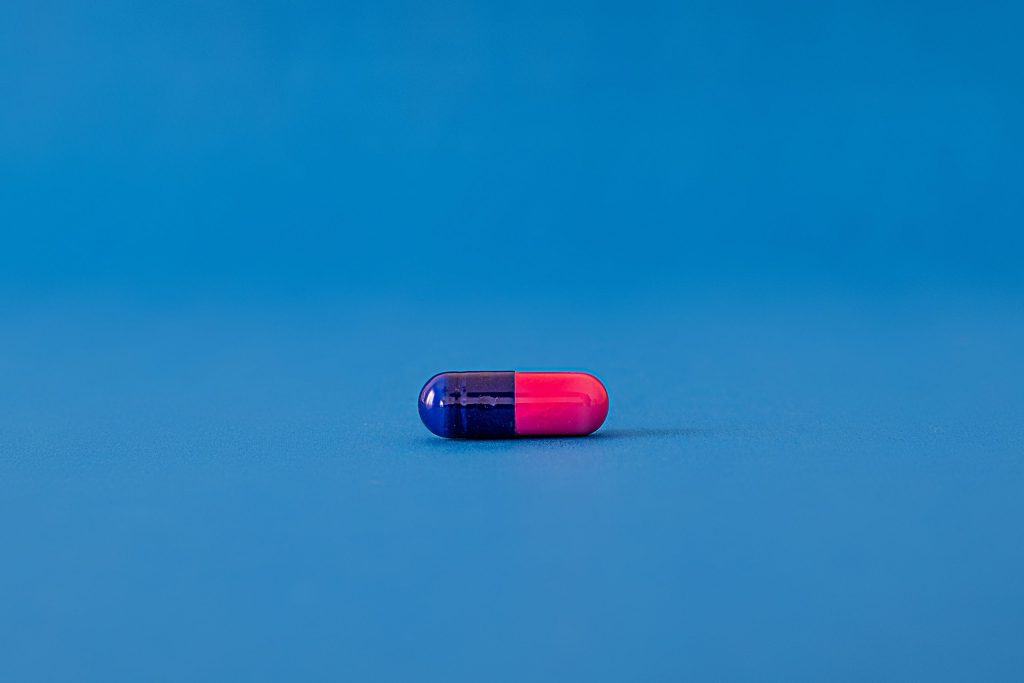Depression is a serious medical condition that can range from mild to severe and trying to navigate treatment options that best suits your particular needs is difficult. There are a variety of methods used to treat depression which may entail therapy such as cognitive behavior therapy or working with a doctor or psychiatrist to be prescribed depression medication. Here is a detailed depression medication list to help you familiarize with the antidepressant options that exist.
Depression medication is often used when therapy and other practices such as regular exercise do not fully treat depression symptoms. However, depression medication isn’t only used to treat depression. It can also be used to treat a variety of mental health disorders such as post-traumatic stress disorder or generalized anxiety disorders.
While it is necessary to consult your doctor on which medication is ideal for you, below is a detailed depression medication list of the different types of medication that are available. Here you will find more information on the different types of depression medications and which medications under each respective category have been approved by the Food and Drug Administration.
Disclaimer
The information included in this page is not a substitute for medical advice. The list of side effects may not include all side effects as drugs can affect all people differently. Any dosage information may not include all dosage information. It is important to discuss with a medical professional that knows your medical history well which dosage is right for you and if there are any potential risks or possible side effects. Our goal is to provide relevant information but this page may not include all up-to-date information.
Depression Medicaiton List – Types of Antidepressants
Selective Serotonin Reuptake Inhibitors (SSRIs)
Selective serotonin reuptake inhibitors work by increasing the amount of serotonin available in the brain, serotonin is a chemical messenger that plays a vital role in transmitting signals between brain nerves or neurons. SSRIs also act to limit the amount of serotonin that is reabsorbed by neurons. Both of these functions allow for more serotonin to be available which improves signaling between neurons.
SSRIs are the most commonly prescribed antidepressant listed on this depression medication list. This type of depression medication is often prescribed due to fewer side effects being reports by users. .
SSRIs can also be used for other medical conditions such as a treatment for individuals with anxiety disorders. SSRIs are also used to treat those with other conditions such as OCD, postpartum depression, PTSD and bulimia.
The Food and Drug Administration (FDA) has approved 5 variations of SSRIs:
- Fluoxetine (Prozac
- Citalopram (Cipramil)
- Escitalopram (Cipralex))
- Praoxetine (Seroxat)
- Sertraline (Lustral)
Below is a SSRI depression medication list.
Fluoxetine (Prozac)
Fluoxetine, or more commonly known under the brand name Prozac, is amongst the most commonly prescribed SSRIs in the United States to patients with depression. Fluoxetine may help those with depression by improving mood, quality of sleep, energy levels and/or appetite.
However, fluoxetine is not exclusively used for treating depression but is also used to treat patients with other medical conditions at the discretion of their doctor. For example, this SSRI may be used to treat obsessive compulsive disorder (OCD) by helping to reduce the amount of unwanted thoughts or the urge to perform compulsion tasks.
Fluoxetine may also be used as a treatment for premenstrual dysphoric disorder (PMDD) as it may help in reducing PMDD symptoms such as depression, irritability, and increased appetite. Fluoxetine may also help in treating some eating disorders such as bulimia by possibly reducing binge and purge behaviors.
Citalopram (Cipramil)
Citalopram, otherwise known under brand names such as Celexa and Cipramil, is another form of antidepressant that may be used for other conditions under a doctor’s discretion.
Escitalopram (Cipralex)
Escitalopram or as it is known under the brand name Cipralex is an SSRI that is used to treat depression as well as other mental health conditions. Escitalopram can be used to help those with generalized anxiety, OCD as well as social anxiety disorders.
Paroxestine (Seroxat)
The SSRI called paroxetine or branded as Seroxat is used to treat depression and can be used to treat generalized anxiety disorders, OCD, PTSD and panic attacks.
Sertraline (Lustral)
Sertraline or known under the brand name Lustral is another SSRI. Like the other listed SSRIs, this prescription medication is used to treat depression, however, sertraline can be used to treat other disorders. Sertraline can be used to treat PTSD, panic disorders and OCD.
SSRIs Side Effects
SSRIs generally work in similar ways but the one best tolerated by you may vary on the medications potentencies. Side effects are typically mild and only last the first few weeks.
Common possible side effects of SSRIs may include but are not limited to:
- Nausea and/or vomiting
- Diarrhea
- Headache
- Drowsiness
- Dry mouth
- Insomnia
- Nervousness, agitation or restlessness
- Lightheadedness
- Sexual problems, such as reduced sexual desire, difficulty reaching orgasm or inability to maintain an erection (erectile dysfunction)
- Changes in appetite, which may lead to weight loss or weight gain
Inform your doctor of any side effects you are experiencing so they may assist in determining which further actions should be taken.

Selective-noradrenaline Reuptake Inhibitors (SNRIs)
Selective-noradrenaline Reuptake Inhibitors (SNRIs) were originally formulated to be more effective than SSRIs. However, SNRIs were not found to be effective for everyone across the board. Instead, SSRIs remain more effective for some while SNRIs are more effective for others.
SNRIs can also be used to treat other conditions such as anxiety disorders as well as chronic pain disorders especially those in combination with depression
This type of antidepressant works by blocking the reuptake of serotonin and norepinephrine in the brain. In doing so, it works to create changes in brain chemistry and communication between brain cells known to regulate mood.
The Food and Drug Administration (FDA) has approved these SNRIs to treat depression:
- Desvenlafaxine (Pristiq)
- Duloxetine (Cymbalta) — also approved to treat anxiety and certain types of chronic pain
- Levomilnacipran (Fetzima)
- Venlafaxine (Effexor XR) — also approved to treat certain anxiety disorders and panic disorder
SNRIs Side Effects
Side effects are possible when beginning new medications, although may not always occur. Side effects are typically mild and subside in a few weeks. Some common possible side effects associated with SNRIs include but are not limited to:
- Nausea
- Which can be reduced by taking medication with food
- Dry mouth
- Lightheadedness
- Headache
- Excessive sweating
Other possible side effects that are less common may include but are not limited to:
- Tiredness
- Constipation
- Insomnia
- Changes in sexual function
- This may include such reduced sexual desire, difficulty reaching orgasm or erectile dysfunction
- Loss of appetite
Consult your doctor on potential side effects and which dose is most appropriate for you and the current symptoms you are experiencing. Read the warnings below when determining to start or stop taking any type of medication from the depression medication list.
Noradrenaline and specific serotonergic antidepressants (NASSAs)
Noradrenaline and specific serotonergic antidepressants (NASSAs) are primarily used to treat depression in those that are unable to take the other classes of antidepressants. One reason NASSA may be prescribed is that they are believed to have less impact on sexual function.
A commonly known NASSA is mirtazapine or marketed as Zispin.
NASSAs work by increasing the amount of serotonin and noradrenaline in the neurotransmitter system while also blocking the reuptake of serotonin by serotonin receptors.
NASSAs Side Effects
NASSAs come with the potential of unpleasant side effects. The most common side effect being drowsiness when first beginning treatment. Some other side effects include but are not limited to:
- Dry mouth
- Weight gain
- Constipation
- Dizziness
Serotonin antagonists and reuptake inhibitors (SARIs)
Serotonin antagonists and reuptake inhibitors or SARIs are a form of antidepressants used to treat major depressive disorder. This particular antidepressant works differently than SSRIs and SRNIs.
SARIs allow for serotonin to remain in the neurotransmitter system for longer by blocking the reuptake of serotonin by serotonin receptors. These work in a way that lessens the frequency of serotonin being removed from the neurotransmitter system which allows for increased mood as well as energy for those suffering from depression.
Commonly known SARIs are trazodone which is also marketed under the brand name Molipaxin and nefazodone which is known under the brand name Serzone. This type of antidepressant can also be used to treat anxiety as well as insomnia in certain patients either suffering from these symptoms alongside depression or independently. .
SARI Side Effects
Like the other classes of antidepressants, SARIs also may cause some unwanted side effects. Some of the side effects include (but are not limited to):
- Fatigue
- Dizziness
- Blurred vision
- Drowsiness
- Fatigue
- Dry mouth
- Constipation
Older Antidepressants
Monoamine oxidase inhibitors (MAOIs) and Tricyclic antidepressants (TCAs) are older types of antidepressants that are not often prescribed nowadays. These two types of antidepressants are not prescribed as frequently due to their more serious side effects and in some cases can be fatal in large doses.
These antidepressants are prescribed when an individual does not respond to more commonly prescribed drugs. These prescription medications may also be used to treat other conditions. For example, some types of TCAs may be used to treat OCD or even chronic nerve pain.
Some common MAOIs are:
- tranylcypromine
- phenelzine
- Isocarboxazid
Some common TCAs are:
- amitriptyline (Tryptizol)
- clomipramine (Anafranil)
- dosulepin (Prothiaden)
- imipramine (Tofranil)
- lofepramine (Gamanil)
- nortriptyline (Allegron)
Other Antidepressants
Some other antidepressants include bupropion which belong to the aminoketone class. This medication works by inhibiting the reuptake of dopamine, serotonin and norepinephrine resulting in more available chemicals to transmit messages to other nerves. . This results in more of these chemicals available to transmit messages to other nerves. Wellbutrin is unique because of its its major effect is on dopamine.
Depression Medication List Disclaimer
In order to determine which prescription from the above depression medication list is best for you, it is best to consult your doctor on potential side effects and which dose is most appropriate for you and your current symptoms. It is also important to make your doctor aware of any other conditions you may have such as (but not limited to) heart issues, epilepsy or diabetes.
Antidepressants may interact with certain conditions or other medications unfavorably thus it is important to be transparent with your doctor to ensure the best medication is prescribed to you. Also, read the warnings below when determining to start or stop taking any type of medication from the depression medication list.
Depression Medication List Warnings
Before deciding which anti-depression medication is best for you from the depression medication list, it is important to not only consult your doctor but to inform them of any current medication you are taking or have taken in the past. It is important to inform your doctor of your current symptoms so they may decide the best course of medication to treat your current symptoms.
Once you begin taking medication to treat your depression, it is important to pay close attention to any changes in mood or any new or worsening thoughts or symptoms. Also be sure to inform your doctor if the medication is not working for you.
When taking any form of medication, follow your doctor’s instructions and the prescription label exactly.
When deciding to stop taking any type of antidepressant, it is important to not suddenly stop taking the medication but to first consult your doctor. Suddenly stopping the use of any medication may cause unwanted side effects or withdrawal, it is important to receive doctors’ instructions on how to safely stop taking your prescription medication.
